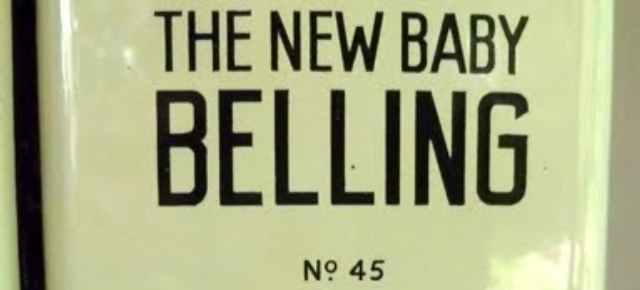In the end, I was in my twenties before two Italians taught me to cook, over a long Easter in a mansion flat high over Wimbledon Common. Little wonder really: as a boy, I’d never really been all that welcome in the kitchen. And an English Sunday dinner, with its roasts and resentful, bad-tempered vegetables and hours of washing up… no.
That you could make a delicious lunch by stirring a dessertspoon of pesto into some spaghetti you’d had on a rolling boil for twelve minutes came as a revelation. Later came sauces, made at home from bargain ingredients from small shops: plum tomatoes you’d chop still in the can, with onions and capers and olives.. I’d never had olives, or for that matter, olive oil.
Then the Italian friends went abroad. But the small repertoire they’d left me with carried me through two houseshares, and then one day the mother of my flatmate in Earls Court came around with a copy of Nigel Slater’s Real Fast Food.
This was 1994, but it wasn’t Nigel’s first book: he’d had a column with Marie Claire for some time, and had already published a collection from there. Real Fast Food however was my breakthrough into proper cooking, and his breakthrough into real stardom.
John Major’s years were the Golden Age of the ready meal, and Nigel’s express purpose had been to present good food that you could enjoy cooking in the same time or less as a ready meal would take in the oven: Real Fast Food was the first of a wave of 30 minute recipe books that – and this is a good thing – has yet to come to an end.
You don’t have to be a ready meal person to appreciate that 30 minutes acts for time in the same way as 99p acts for price: it’s something most of us would be willing to give up for anything reasonably worthwhile, let alone an excellent meal. The idea that proper cooking could be undertaken in half an hour is liberating.
Also liberating is Nigel’s generous attitude to what constitutes good food. We’re familiar now with celebrity chefs endorsing old favourites like jacket potatoes or bangers and mash: it was new to me in 1994 and so were the myriad of little ways Nigel gives you to pep things up and prevent overfamiliarity and boredom.
Nigel’s own kitchen back then was still more galley than gallery, and his tips on cooking tools and equipment are pure Garreteer fare: a good knife and chopping board, a couple of pans, something to strain and drain, a baking tray or oven dish and some kind of spatula to scrape the crunchy bits off with. For anyone who grew up with a kitted-out kitchen but no longer have one of their own, this comes as a relief.
So, for that matter, does Nigel’s attitude to amounts. He is a prose craftsman, and you can visualize his don’t-worry-about-it descriptions of ingredient weights and measures more quickly and easily than you could conceivably measure them. I cooked from this book for five years before I possessed scales.
Everything’s on the menu in Real Fast Food. Fish is an especial mystery to novice cooks, to the extent that they miss out on a source of cheap deliciousness and nutrition, but, 17 years before Channel 4’s Fish Fight, Nigel covers them all. You’ll be able to pick something up at the quayside, take it back to your self-catering cottage and turn it into breakfast. Chicken, pork, beef and lamb are all covered just as well – and vegetarians aren’t forgotten either.
Nigel tells you what to keep in your storecupboard: I’ve taken Real Fast Food into bedsits that didn’t have a storecupboard so much as a cavity under the much-missed Baby Belling, and found his advice easy to adapt.
We’re going to cover other essential books for Garreteer cooking, but this is the one that we would recommend to anyone who is genuinely starting out as we once were. Nigel Slater dedicated Real Fast Food to an inspiration of his and ours, and it’s only appropriate to follow suit: this piece is dedicated to the memory of the irreplaceable, much missed Jeremy Round.

